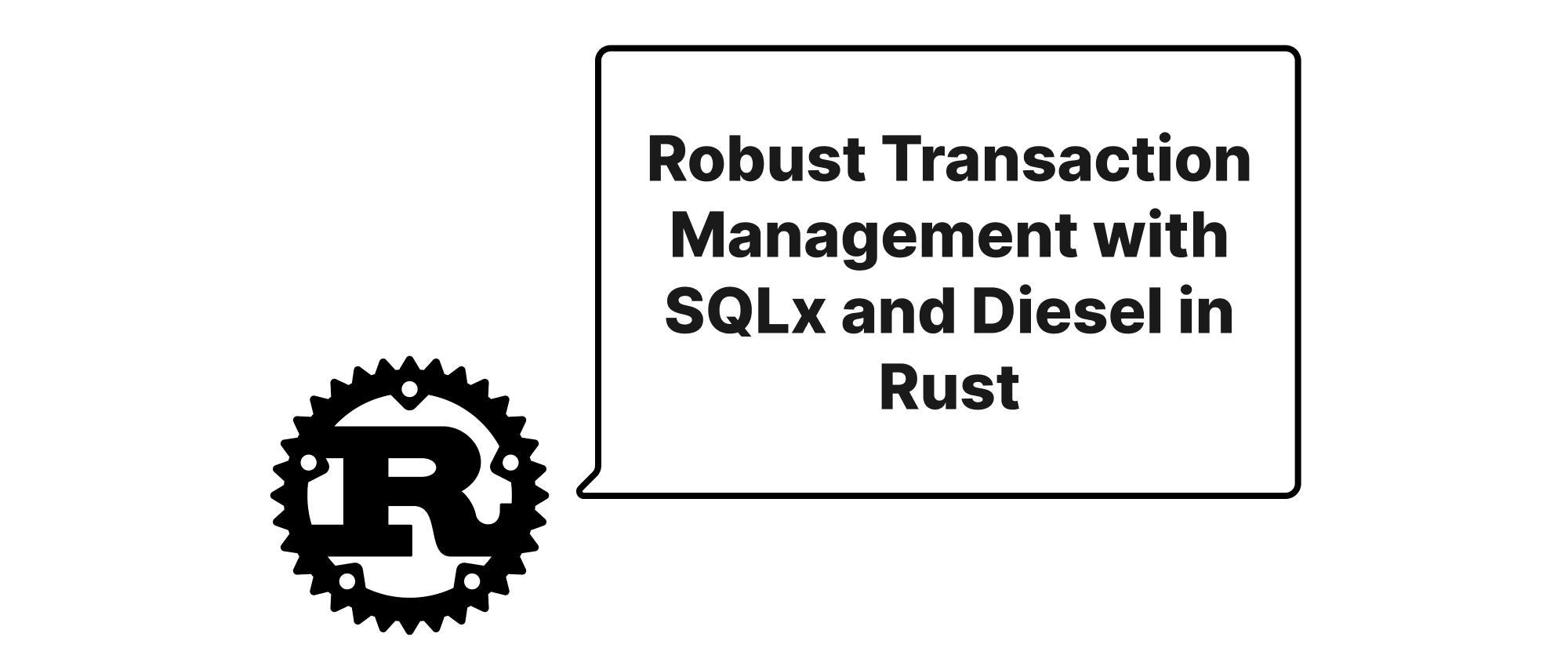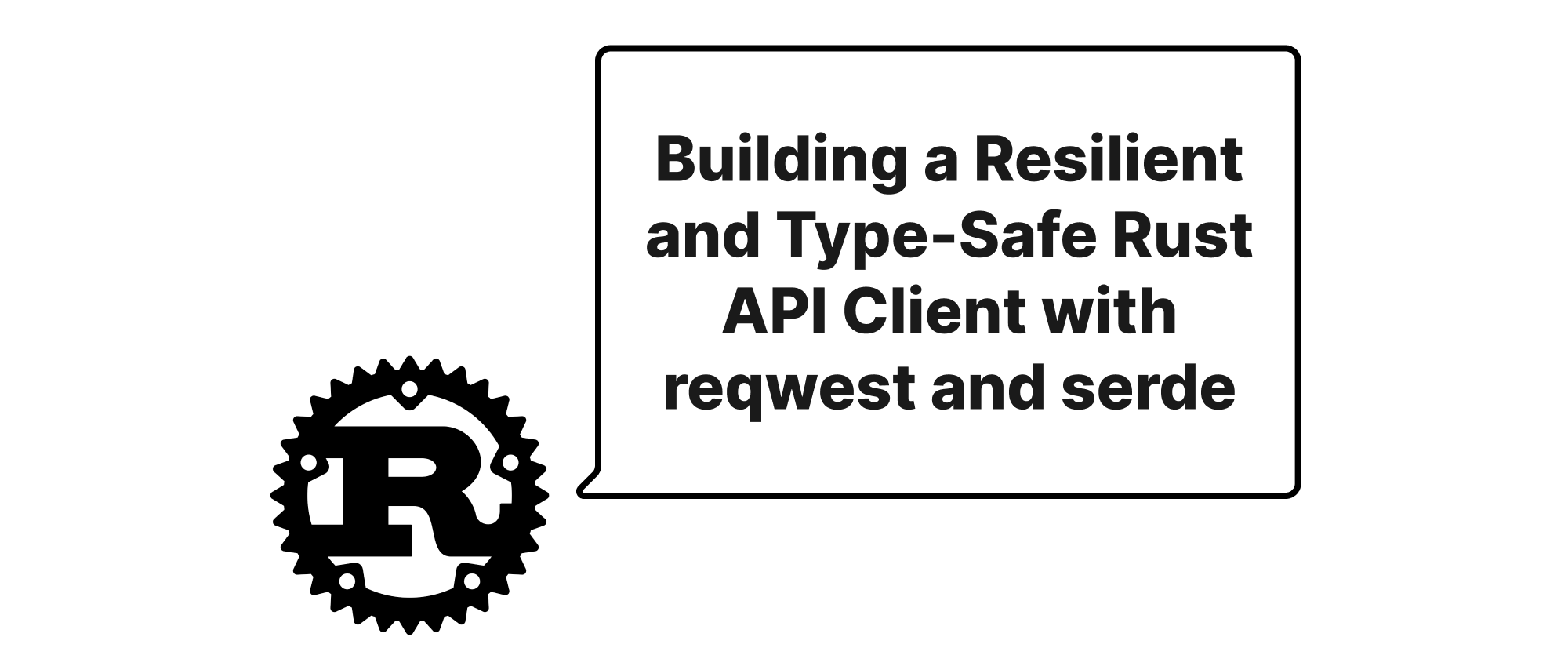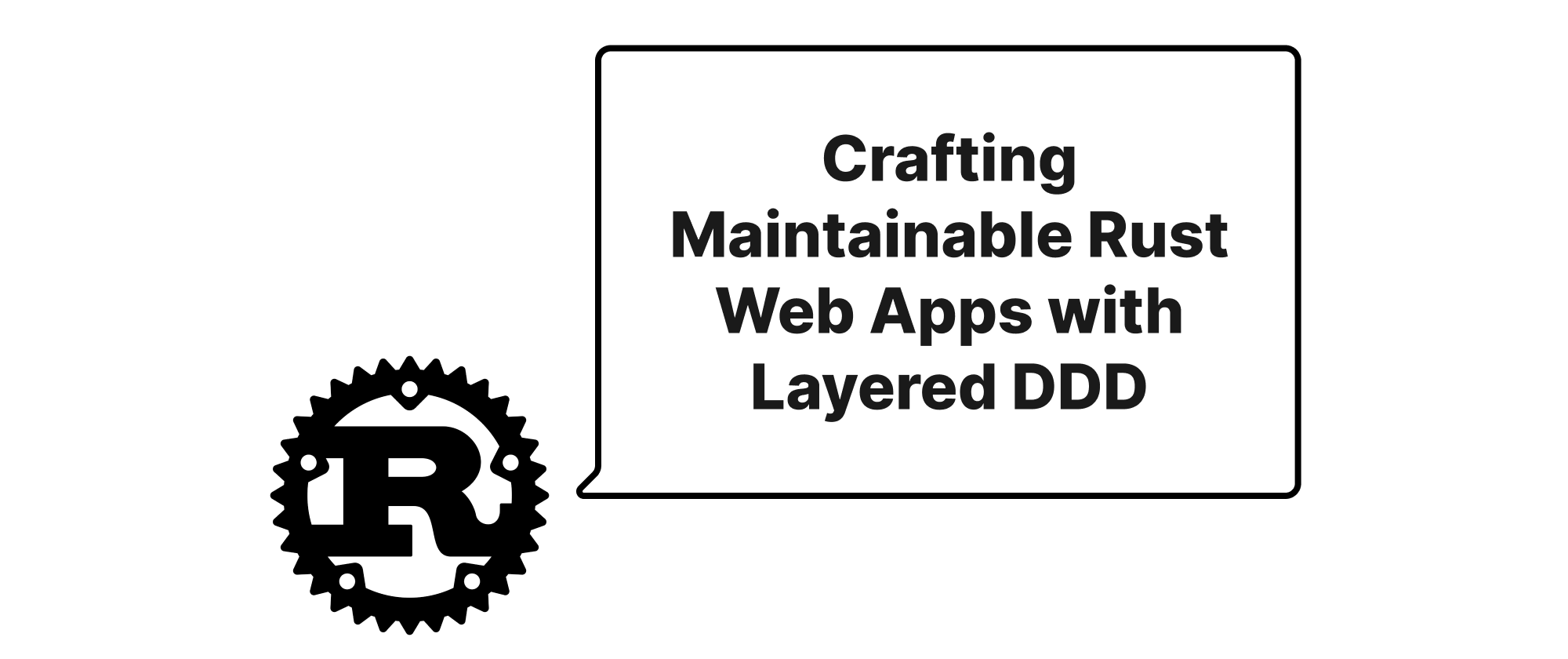Robust Transaction Management with SQLx and Diesel in Rust
James Reed
Infrastructure Engineer · Leapcell

Introduction
In the world of data-driven applications, ensuring data integrity and consistency is paramount. Imagine a financial transaction where money is debited from one account but fails to be credited to another due to an unexpected error. Without a robust mechanism to handle such scenarios, your entire system's reliability crumbles. This is precisely where database transactions come into play. Transactions provide an "all or nothing" guarantee, ensuring that a series of operations either all succeed and are committed, or if any fail, all are rolled back to their initial state. In the Rust ecosystem, sqlx and diesel are two popular and powerful ORMs/query builders that offer excellent support for transaction management. This article delves into how to leverage these tools for secure transaction handling and error rollback, ensuring your Rust applications interact with databases safely and reliably.
Understanding Transactional Foundations
Before diving into the specifics of sqlx and diesel, let's define some core concepts related to database transactions:
- Transaction: A single logical unit of work that contains one or more operations. These operations are treated as a single, indivisible sequence.
- ACID Properties: A set of properties that guarantee valid transactions.
- Atomicity: All operations within a transaction either complete successfully or fail completely. There is no partial completion.
- Consistency: A transaction brings the database from one valid state to another.
- Isolation: Concurrent transactions do not interfere with each other. Each transaction appears to execute in isolation.
- Durability: Once a transaction is committed, its changes are permanent and survive system failures.
- Commit: The process of permanently saving the changes made during a transaction to the database.
- Rollback: The process of undoing all changes made during a transaction, restoring the database to its state before the transaction began.
- Savepoint: A marker within a transaction that allows for partial rollbacks. You can roll back to a specific savepoint without undoing the entire transaction. While
sqlxanddieselcan work with savepoints, their primary focus is on full transaction scope for simplicity and common use cases.
These concepts form the backbone of reliable database interactions, and both sqlx and diesel offer elegant ways to implement them in Rust.
Secure Transaction Management with SQLx
sqlx is an asynchronous, pure Rust SQL crate that aims to provide type-safe queries without code generation. Its transaction management is straightforward and integrates well with Rust's asynchronous nature.
Principle and Implementation
sqlx provides the begin() method on a database connection to start a transaction. This method returns a Transaction object, which implements Drop. Crucially, if the Transaction object goes out of scope without being explicitly committed, it will automatically be rolled back when drop is called. This "RAII-like" behavior for transactions is a powerful safety feature.
Let's illustrate with an example:
use sqlx::{PgPool, Error, Postgres}; async fn transfer_funds_sqlx(pool: &PgPool, from_account_id: i32, to_account_id: i32, amount: f64) -> Result<(), Error> { let mut tx = pool.begin().await?; // Debit from the sender account let rows_affected = sqlx::query!( "UPDATE accounts SET balance = balance - $1 WHERE id = $2 AND balance >= $1", amount, from_account_id ) .execute(&mut tx) .await? .rows_affected(); if rows_affected == 0 { // If no rows were updated, either the account doesn't exist or insufficient funds. // The transaction will be rolled back as `tx` will be dropped without commit. return Err(Error::RowNotFound); // A more specific error might be better here } // Credit to the receiver account sqlx::query!( "UPDATE accounts SET balance = balance + $1 WHERE id = $2", amount, to_account_id ) .execute(&mut tx) .await?; // If both operations succeed, commit the transaction tx.commit().await?; Ok(()) } // Example usage (simplified for demonstration) #[tokio::main] async fn main() -> Result<(), Box<dyn std::error::Error>> { let database_url = "postgres://user:password@localhost/my_database"; let pool = PgPool::connect(&database_url).await?; // Assuming accounts table exists and has some data // INSERT INTO accounts (id, balance) VALUES (1, 100.00), (2, 50.00); match transfer_funds_sqlx(&pool, 1, 2, 25.00).await { Ok(_) => println!("Funds transferred successfully!"), Err(e) => println!("Failed to transfer funds: {:?}", e), } match transfer_funds_sqlx(&pool, 1, 2, 200.00).await { // Should fail due to insufficient funds Ok(_) => println!("Funds transferred successfully!"), Err(e) => println!("Failed to transfer funds: {:?}", e), } Ok(()) }
In this sqlx example:
pool.begin().await?starts a new transaction. Thetxvariable now holds the transaction handle.- Database operations are performed using
&mut txto ensure they are part of this transaction. - If an
Erroroccurs (?operator), the function returns early. Sincetx.commit().await?is not reached, thetxvariable goes out of scope, triggering itsdropimplementation. Thedropimplementation automatically callsROLLBACKon the database connection, ensuring atomicity. - If all operations succeed,
tx.commit().await?is called, making the changes permanent.
This pattern is extremely safe and idiomatic in Rust, leveraging the type system and ownership to prevent accidental uncommitted transactions.
Application Scenario
This sqlx transaction pattern is ideal for any scenario requiring atomicity:
- Fund transfers: As shown, ensuring money is either moved entirely or not at all.
- Order processing: Creating an order, updating inventory, and sending a confirmation email – all as one unit.
- Creating a user with associated data: Creating a user record and their default profile settings.
Secure Transaction Management with Diesel
diesel is a powerful, safe, and extensible ORM/query builder for Rust. It provides a more declarative way to interact with databases, and its transaction management is equally robust.
Principle and Implementation
diesel offers the transaction method on its connection types (e.g., PgConnection for PostgreSQL). This method takes a closure (FnOnce(&mut Self) -> Result<T, E>) that encapsulates the transactional operations. If the closure returns Ok(T), the transaction is committed. If it returns Err(E), the transaction is rolled back. This functional approach is very expressive and helps maintain separation of concerns.
Let's adapt the fund transfer example for diesel:
use diesel::prelude::*; use diesel::pg::PgConnection; use diesel::result::Error as DieselError; // Alias to avoid ambiguity // Assuming you have a `schema.rs` generated by Diesel CLI // table! { // accounts (id) { // id -> Int4, // balance -> Float8, // } // } // use crate::schema::accounts; // Make sure this is in scope // For demonstration, let's define a simple `Account` struct #[derive(Queryable, Selectable, Debug)] #[diesel(table_name = accounts)] pub struct Account { pub id: i32, pub balance: f64, } fn transfer_funds_diesel(conn: &mut PgConnection, from_account_id: i32, to_account_id: i32, amount: f64) -> Result<(), DieselError> { conn.transaction::<(), DieselError, _>(|conn| { use accounts::dsl::*; // Debit from the sender account let updated_rows = diesel::update(accounts.filter(id.eq(from_account_id).and(balance.ge(amount)))) .set(balance.eq(balance - amount)) .execute(conn)?; if updated_rows == 0 { // Analogous to sqlx's RowNotFound, but Diesel's error types are different. // We can return a custom error or a specific Diesel error here. // For simplicity, we'll use a generic one, but a custom `NotEnoughFunds` error would be better. return Err(DieselError::NotFound); } // Credit to the receiver account diesel::update(accounts.filter(id.eq(to_account_id))) .set(balance.eq(balance + amount)) .execute(conn)?; Ok(()) // If all operations succeed, return Ok to commit the transaction }) } // Example usage (simplified for demonstration) fn main() -> Result<(), Box<dyn std::error::Error>> { let database_url = "postgres://user:password@localhost/my_database"; let mut conn = PgConnection::establish(&database_url)?; // Assuming accounts table exists and has some data // INSERT INTO accounts (id, balance) VALUES (1, 100.00), (2, 50.00); match transfer_funds_diesel(&mut conn, 1, 2, 25.00) { Ok(_) => println!("Funds transferred successfully!"), Err(e) => println!("Failed to transfer funds: {:?}", e), } match transfer_funds_diesel(&mut conn, 1, 2, 200.00) { // Should fail due to insufficient funds Ok(_) => println!("Funds transferred successfully!"), Err(e) => println!("Failed to transfer funds: {:?}", e), } Ok(()) }
In this diesel example:
conn.transaction::<(), DieselError, _>(|conn| { ... })creates a new transaction scope.- All database operations inside the closure operate on the
connpassed to it, ensuring they are part of the transaction. - If any operation within the closure returns
Err(E)(e.g., due to?operator or explicitreturn Err(...)), thetransactionmethod catches this error and performs aROLLBACK. - If the closure completes successfully and returns
Ok(()), thetransactionmethod performs aCOMMIT.
This design clearly separates the transactional logic from the commitment/rollback mechanics, making the code clean and robust.
Application Scenario
Similar to sqlx, diesel's transaction capabilities are essential for:
- Complex business logic: Any operation involving multiple database writes that must be treated atomically.
- Data migration scripts: Ensuring that data transformations are either fully applied or fully reverted if an error occurs.
- API endpoints handling critical data: Guaranteeing that updates to sensitive information abide by consistency rules.
Conclusion
Both sqlx and diesel provide excellent, safe, and idiomatic ways to manage database transactions and error rollbacks in Rust. sqlx leverages Rust's RAII principles with its Transaction object's Drop implementation for implicit rollback on error, while diesel offers a functional approach with its transaction method that handles commit/rollback based on the closure's return value. By diligently employing these features, developers can build highly reliable and fault-tolerant applications, ensuring data integrity even in the face of unexpected failures. Secure transaction management is not merely a best practice; it is a fundamental requirement for dependable data systems.


